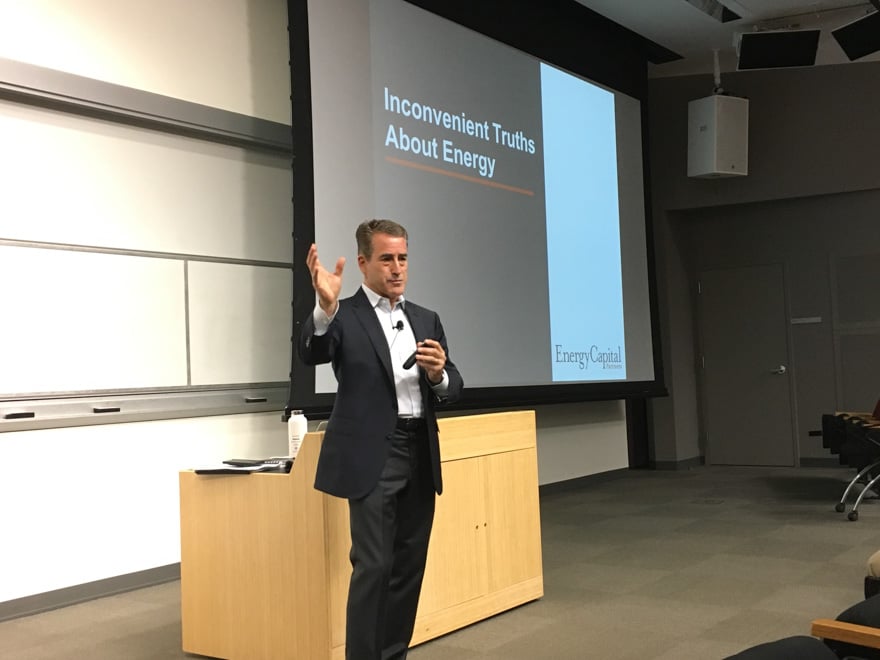On Monday, Energy Capital Partners founder Douglas Kimmelman ’82 discussed California’s carbon dioxide emissions, the true cost of renewable energy in the United States and the current role of fossil fuels globally.
Energy Capital Partners is a private equity firm that invests in North American energy infrastructure and power generation.
Kimmelman began by addressing technologies — such as hydraulic fracturing and horizontal drilling — that have driven down the cost of natural gas production. Both are drilling techniques used for extracting natural gas from underground reservoirs which, compared to older extraction methods such as conventional vertical drilling, have less of a negative impact on the environment, he said.
“The United States has become the world’s lowest-cost energy producer for natural gas,” Kimmelman said. “And we can use that for enormous environmental advantage.”
According to Kimmelman, the United States’ current global share of carbon dioxide emissions is about 14 percent. But due to the advent of these methods, greenhouse gas emissions are projected to drop to 12 percent over the next 15 years.
In particular, Kimmelman addressed California’s role in fossil fuel power generation, which he measured in terawatt hours, a unit of energy. He contrasted China’s expected growth in fossil fuel generation, which is about 2,000 terawatt hours by the year 2030, with California’s expected decrease of about 28 terawatt hours by the same date.
Kimmelman also explored how fossil fuels permeate all aspects of our daily lives. Products produced from petroleum, ranging from plastic to detergent, are used by Americans at a rate of three-and-a-half gallons of oil and 250 cubic feet of natural gas per person per day.
“Energy literacy for this country is not where it should be,” Kimmelman said.
Such reliance on fossil fuels makes it more difficult to switch to other more environmentally-friendly modes of energy. According to Kimmelman, the country has been so entrenched in fossil fuel usage that alternative sources of energy like wind and solar power are currently still more expensive.
“Reductions in solar and wind power costs over the past ten years have lagged behind the reduction in fossil power costs,” said Kimmelman. “This is due largely to abundant shale gas and an over 80 percent price reduction in natural gas.”
Kimmelman also addressed electric vehicle companies, like Tesla, which he said have a tendency to be misleading in marketing their zero emissions vehicles. He argued that these companies often overstate the environmental benefits of their cars so that people feel like they are helping the environment more than they actually are.
“If you drive an electric car, you’re only doing 50 percent better for the environment than if you’re driving a small, efficient vehicle,” said Joshua Kenway, a first year graduate student in the Ford Dorsey Master’s in International Policy (MIP) program who attended the event. “Some of these choices [are just] virtue signaling and actually not as impactful as you might hope.”
According to Kimmelman, the challenge is finding a balance between the things that society needs and the things that society is willing to pay for.
“The fact that he was willing to come and speak to the student body was wonderful,” said Jason Spyres ’20, another event attendee. “We all benefit when we hear people like Kimmelman give us the harsh realities of how energy is provided on a large scale.”
Contact Tejas Athni at tathni ‘at’ stanford.edu.
